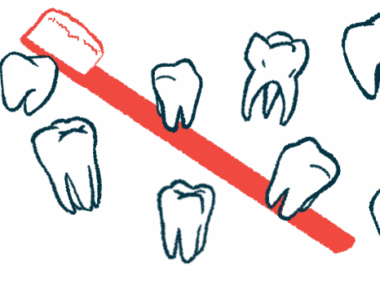Scientist to use grant to train dental students and faculty in Sjögren’s
Fostering collaboration, conducting clinical trial part of $4.7M in federal funds
Written by |

A Regenstrief Institute research scientist will use a five-year, $4.7 million federal grant on a Sjögren’s syndrome biomarker research project and dental training program aimed at fostering collaboration among healthcare professionals and incorporating into clinical practice research on disorders that affect oral health.
Specifically, the grant from the National Institutes of Health’s National Institute of Dental and Craniofacial Research will be used to train dental students and faculty, enhance mentorships, and conduct a clinical study in which students and clinicians will learn how to conduct a salivary hypofunction test to spot an early biomarker for Sjögren’s, a chronic autoimmune disorder that mainly causes dryness in the mouth and eyes.
“This grant is significant. I’m really excited, because it’s about taking research to the real-world settings,” Thankam Thyvalikakath, PhD, director of the Regenstrief and Indiana University School of Dentistry dental informatics program said in a video featured in a university press release about the research project. The Indianapolis-based Regenstrief Institute is a key research partner to Indiana University.
“Right now, in terms of managing Sjögren’s disease, even though both dentists and physicians, they all know how dry mouth is a cardinal symptom, we don’t talk to each other and we don’t discuss a shared management plan. As a result, the person who is experiencing this condition suffers,” added Thyvalikakath, who is also a professor and the associate dean of dental informatics and digital health at Indiana University School of Dentistry.
In Sjögren’s, which is more prevalent in women older than 40, the immune system produces antibodies that attack cells in the glands that generate saliva and tears, causing chronically dry mouth and eyes. A dry mouth can result in cavities, because saliva normally helps to shield teeth from decay, and complications such as crumbling of a tooth or bone. It can also cause halitosis, or bad breath.
Because patients are more susceptible to cavity development, they generally lose many teeth over time. Reduced salivary flow can also render dentures difficult to wear, so many patients opt for dental implants. A study published in 2019 found that implants are a viable option for patients, despite the belief among many healthcare professionals that such patients have an elevated risk of implant failure.
Research plans for federal grant
Thyvalikakath’s research will involve screening women who come to the dental clinic at Indiana University’s School of Dentistry, collecting saliva and analyzing it for any early Sjögren’s biomarkers. Those patients will receive follow-up care for about three to four years. According to Thyvalikakath, the overarching goal is to educate dental students and practitioners about how to “communicate and coordinate care for their patient, along with a primary care physician, rheumatologist, and a pharmacist.”
“We also have plans to recruit two to three community practices, because the overall goal is to make them comfortable, to think about incorporating research as part of their clinical workflow,” Thyvalikakath said.






